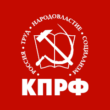In recent decades imperialist plans of Turkish bourgeoisie have been transforming into neo-Ottomanism and pan-Turkism and become an essential geopolitical factor in the post-Soviet territory. Ideas with deep roots coming from the past are now in demand by the Turkish bourgeoisie as an instrument for promoting imperialist ambitions within the boundaries of the former USSR and in other countries.
Currently this process is going to be in limelight following the Turkey’s position in Nagorno-Karabakh conflict which has clearly highlighted the imperialist intentions of the most radical part of the Turkish ruling class.
So-called Centers of Turkish Culture established by Yunus Emre Foundation in 2009 now play an important role in propagating ideas of neo-Ottomanism. This was initiated by Abdullah Gül, the then President of the Republic of Turkey.
In centers established in different countries, the ideas of neo-Ottomanism are being propagated under the guise of educational activities along with instruments of soft power which are being created to push forward imperialist aspirations of the Turkish bourgeoisie. For example, during the opening ceremony of one of such centres, President Abdullah Gül, who was attending in person, noted that the Yunus Emre Centers of Turkish Culture are to be considered as “invisible” power of Turkey.
In due time, two such centres were established in Russia (in Moscow and Kazan). The Kazan Center was opened on September 28, 2012, it was headed by Mr. Ihsan Demirbas, a Turkish citizen. The Kazan Center was formally closed in 2016. But most likely it has been operating underground, pushing forward the ideas of neo-Ottomanism among the Turkic peoples in Russian Volga Region. Along with seminars and lectures, it even invites foreign lecturers, actively making use of the modern online technologies. Even in April-May 2020, in the context of a global pandemic, there was an attempt to hold a Turkish holiday with a large-scale involvement of children from Tatarstan.
Turkish imperialism has been openly fighting for dominance over the territory of the former USSR making use of various ways ranging from soft power to a quite real, military force. Turkey openly assumes the role of the hegemon of the post-Soviet territory. The escalation of tension in the post-Soviet countries is directly related to the economic downfall both in the former USSR countries and in Turkey. In such an environment the capitalist circles, by inertia, are looking for opportunities to solve domestic problems through expansion of markets as well as affecting their close neighbours.
What can we oppose with imperialists’ attempts to initiate new conflicts and stir up inter ethnic tension? Only the unity of the working classes of the post-Soviet countries and Turkey can stop attempts to turn the territory of the former USSR into the zone of imperialist wars.
Kazan’ city committee of the CPRF
